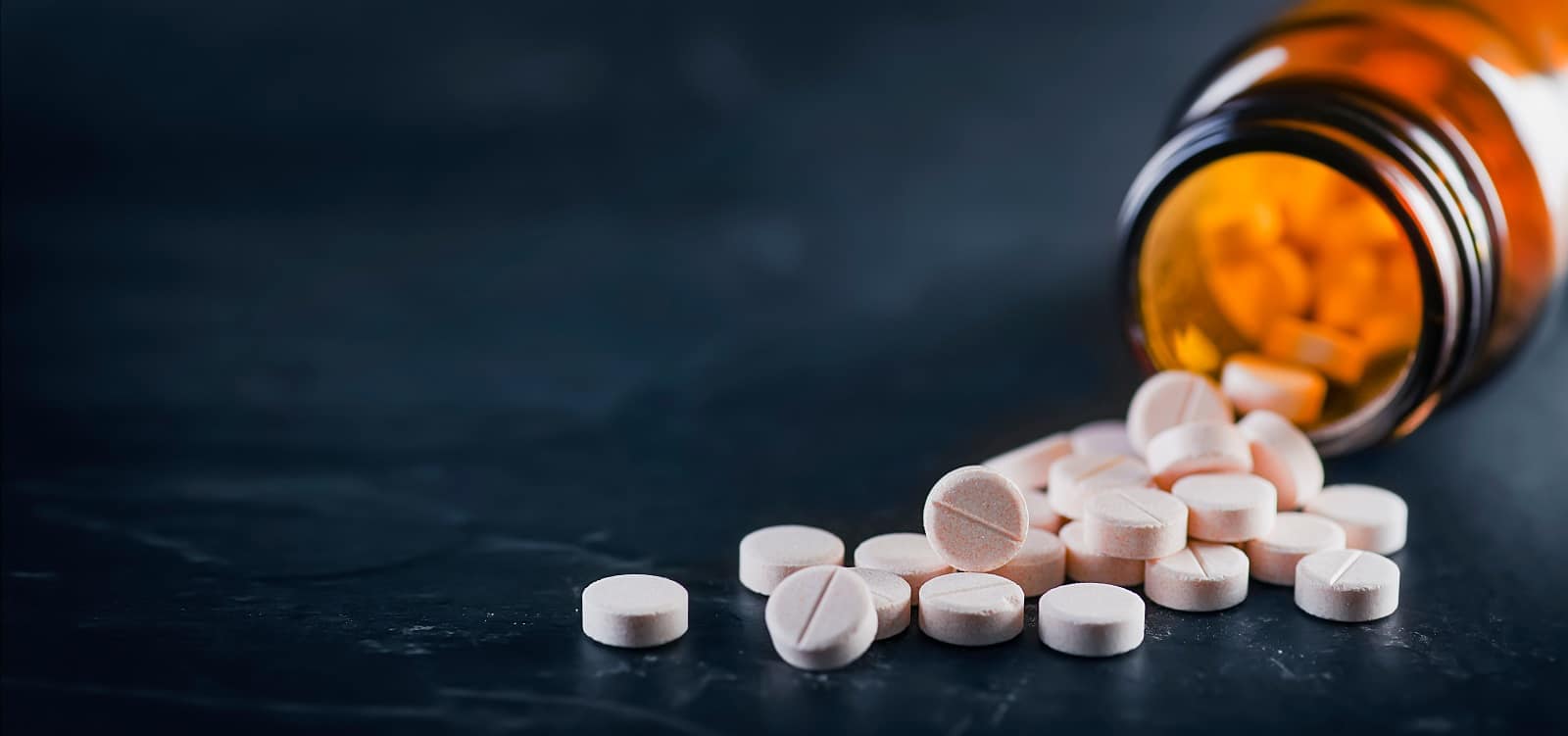Methadone is a narcotic synthesized for relieving pain. This prescription drug is prescribed by doctors to treat opioid addiction, specifically opioid withdrawal symptoms. It’s also prescribed to relieve extreme pain, frequently in people with cancer or other terminal illnesses.
A receptor antagonist that works on one or more opioid receptors is known as an opioid antagonist or opioid receptor antagonist. Methadone is an opioid agonist
Despite the fact that methadone has been legal in the US since 1947, it has only recently become a popular substance of abuse. This tendency might be influenced in part by the drug’s easy accessibility, given that it is increasingly being utilized to treat Opioid Use Disorder, opioid addiction or dependence, and alleviate chronic pain.
Alternatives to Methadone
While Methadone is commonly used to treat opioid addiction, other medications along the same lines are prescribed as well. One such drug is Suboxone. Suboxone is made up of buprenorphine and naloxone, whereas methadone is synthetically derived. Both are used to curb the symptoms of opioid withdrawal.
Methadone and suboxone have the potential to become addictive, and in recent years have been increasingly abused. This is in part due to the fact that substance use disorder is a hard habit to kick, and some argue that giving methadone or suboxone to a person struggling with addiction is replacing one fix with another.
How Does Methadone Work?
Prescribing methadone is a part of medication-assistant treatment known as Pharmacotherapy. Pharmacotherapy is the process of switching to a legally prescribed alternative from the substance that caused one’s reliance.
Methadone must be prescribed by a licensed practitioner, typically wherever you regularly receive healthcare or at a treatment center. Methadone is frequently used alongside other therapies like counseling. One dose of methadone is usually between 30-120 mg, depending on how long you’ve been in recovery from opiate dependence and how your body has responded to the medication.
Methadone treatment is meant to act as a stop-gap measure toward the treatment of opioid drug use, dependence cravings, and withdrawal symptoms. By impacting opioid receptors in the brain (which are also activated by other opioids, including heroin, morphine, and opioid painkillers), methadone and other opioid agonists reduce the effects of withdrawal symptoms and alleviate drug cravings.
The goal of methadone treatment is make the transition from dependence to freedom safer, more comfortable, and more successful.

Conditions Methadone May Be Prescribed To Treat
Methadone is a drug that the Food and Drug Administration (FDA) has authorized for both pain management and medication-assisted treatment (MAT) for opioid use disorder (OUD). Methadone is a safe and reliable drug when taken as directed.
Methadone is prescribed for a variety of opioid addictions, including heroin, oxycodone, fentanyl, hydrocodone, and codeine.
Side effects of Methadone
Methadone is still an opioid agonist medication, similar to the effects of heroin or opium, despite controlled amounts being ethically and medically acceptable. While methadone is a gentler drug, it is still a narcotic with a significant risk of addiction and potentially harmful side effects.
Any time methadone is used, there is a chance that the user will experience a number of negative side effects that might be harmful to their physical and mental health.
Some side effects include:
- Drowsiness
- Dry Mouth
- Low libido
- Tremors
- Seizures
- Delusions
- Paranoia
- Suicide ideation
- Difficulty focusing
- Anxiety
- Depression
- Lightheadedness
- Insomnia
- Hallucinations
- Constipation
Methadone Withdrawal
Methadone withdrawal syndrome, though seldom life-threatening, can be highly uncomfortable and increase the likelihood of relapse if suddenly stopped.
Working with a treatment center to develop a tapering program that gradually reduces the dose of the medicine is the safest approach to stop taking methadone. A taper aids in easing withdrawal symptoms and preventing relapse.
The best chance of success for those who have been abusing the drug is to go through withdrawal in a medical detox program before starting a formal substance abuse recovery program.
Withdrawal includes a myriad of undesirable symptoms:
- Insomnia
- Anxiety
- Depression
- Tremors
- Chills
- Nausea
- Vomiting
- Diarrhea
- Night sweats
- Abdominal cramps
- Mood swings
Dangers of Methadone
Methadone has been believed to be a safer method of treating and managing severe pain for years. It had a reputation for relieving pain without the potential for abuse or addiction. This of course, has not aged well.
Methadone is a Schedule II controlled substance, which means that when used outside of the scope of a prescription, there is a substantial risk of abuse and addiction. Even when taken as prescribed, methadone consumption can result in drug addiction.
The warning signs and symptoms of methadone dependence or addiction can take time to manifest. There are both physical and psychological indications that pose a danger to the user of this medication, and sometimes it’s life-threatening.
According to a study published in the American Journal of Forensic Medicine and Pathology, methadone use has been linked to an increase in fatal overdoses, with 84 percent of these overdoses occurring accidentally while using methadone alone or in combination with other drugs—both prescription and illicit—or alcohol.
Pregnant or Breastfeeding Women and Methadone
Pregnant or breastfeeding women may benefit from taking methadone for their opioid use disorder when directed and under the guidance of a doctor.
There is very little methadone that newborns are exposed to through breast milk from their moms. It is important not to dissuade women from breastfeeding who are receiving methadone treatment for opiate dependence. Breastfeeding has many advantages that far outweigh any potential small hazards.
Methadone can be a secure treatment for pregnant women with opioid use disorder when administered under a doctor’s care. In many circumstances, you can continue taking the same dose of methadone if you get pregnant while on maintenance.

Methadone Overdose
Methadone is considered to be responsible for one-third of overdose deaths using opioid pain relievers while only making up a small percentage of OPR prescriptions, according to vital statistics data. Methadone remains a drug that contributes disproportionately to the excessive number of opioid pain reliever overdoses and associated medical and societal costs[3].
The CDC holds strong morals when it comes to prescribing methadone. According to the CDC, when prescribing methadone, medical professionals should be familiar with its use and adhere to accepted standards for responsible opioid prescribing.
Only in situations where the benefits of using methadone as an analgesic outweigh the risks to patients and society should providers use it. It is not advised to use methadone or other opioids with the extended release for minor discomfort, acute pain, “breakthrough” pain, or on an as-needed basis. Prescribers and insurance companies shouldn’t prioritize methadone as a treatment for persistent noncancer pain.
Methadone Safety
Using methadone requires supervision from a doctor to safely recover from opioid addiction or manage pain. The use of methadone is linked to a number of overdoses and drug abuse. In many cases, a person who has become dependant on it may need to enter detox.
Methadone offers relief to patients who do not respond to non-narcotic painkillers, and it has long been used to treat heroin addiction and narcotic painkiller dependence in people.
Methadone is a safe and reliable drug when taken as directed. However, there are dangers associated with any medications. To reap the most rewards, patients and medical professionals must be aware of methadone’s strength and physiological consequences.
To take methadone safely, consider the following:
- Take it exactly as your doctor prescribes it to you
- Refrain from drinking any alcohol during the time you take it
- Do not take medicine that makes you sleepy while taking methadone.
- You should use methadone with extra caution if you are taking medication that could affect your heartbeat (a condition known as arrhythmias).
- Do not take if you have epilepsy
- If you experience chest pain or difficulty breathing/shallow breathing, call your doctor right away
- Do not take more if you miss a dosage or if you think it is not working
Frequently Asked Questions About Methadone
Below are frequently asked questions about methadone.
Methadone and buprenorphine are both opioids. Methadone is a wholly synthetic substance, whereas buprenorphine is a semi-synthetic substance derived from both natural and synthetic substances. Both work with opioid receptors in the brain to reduce withdrawal symptoms.
Learn More About Methadone and Medication Therapy Treatment Programs
At Gallus, we know you aren’t your addiction. While the road to addiction treatment may feel distressing, our team of highly qualified medical professionals is here to assist you in overcoming your substance use disorder in a judgment-free environment.
Our detox treatment programs are designed with you in mind and are tailored to fit you. If you or a loved one is suffering from addiction, contact us today and begin your journey to healing.
